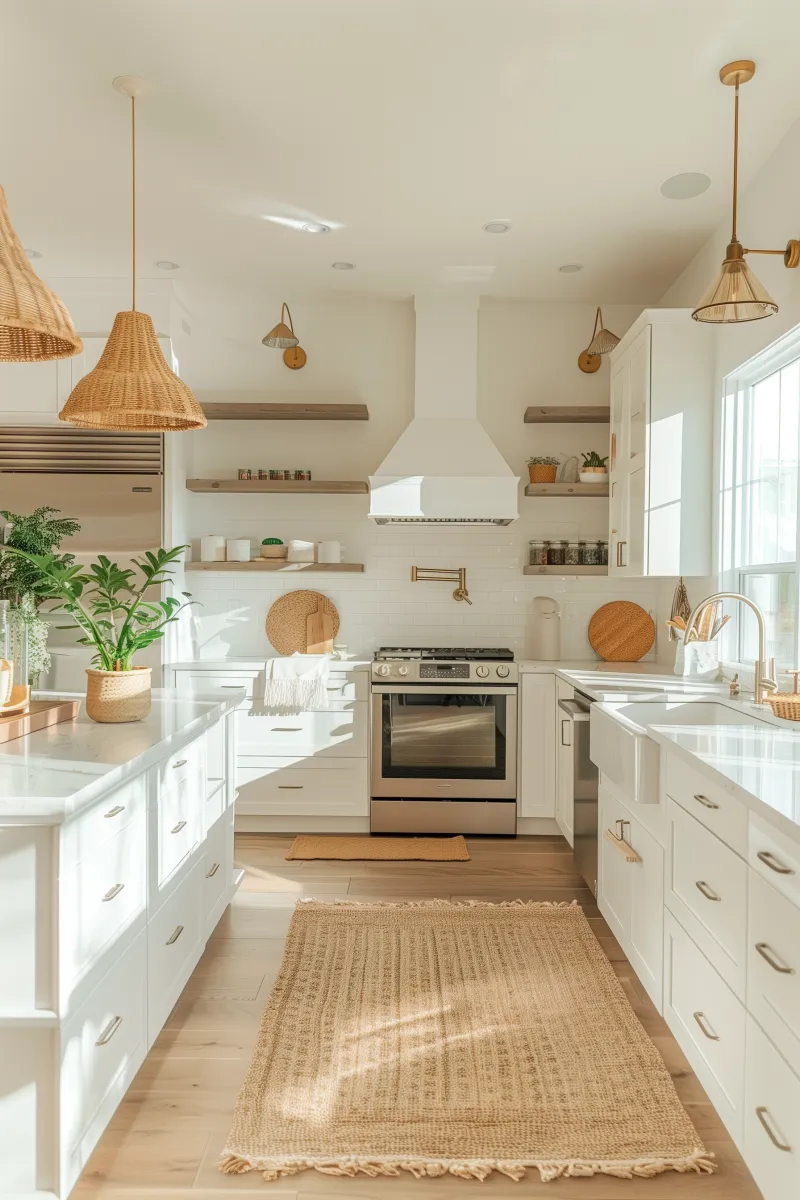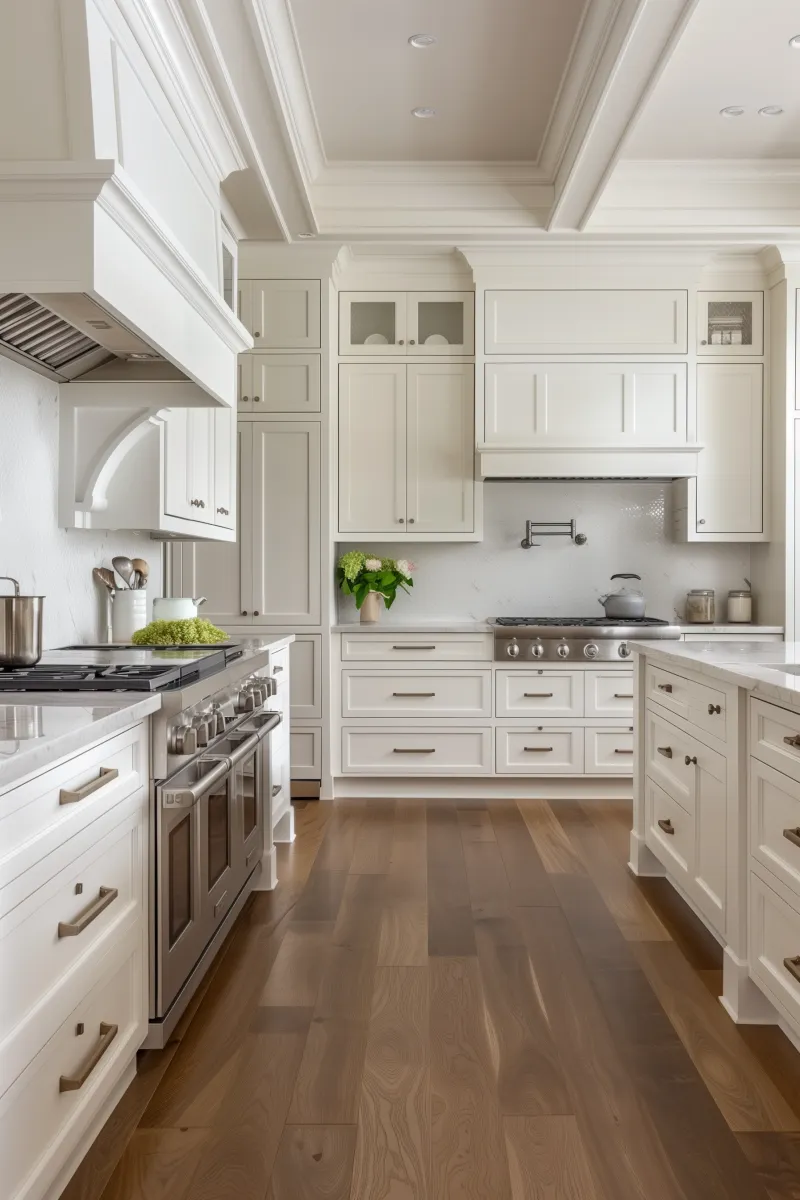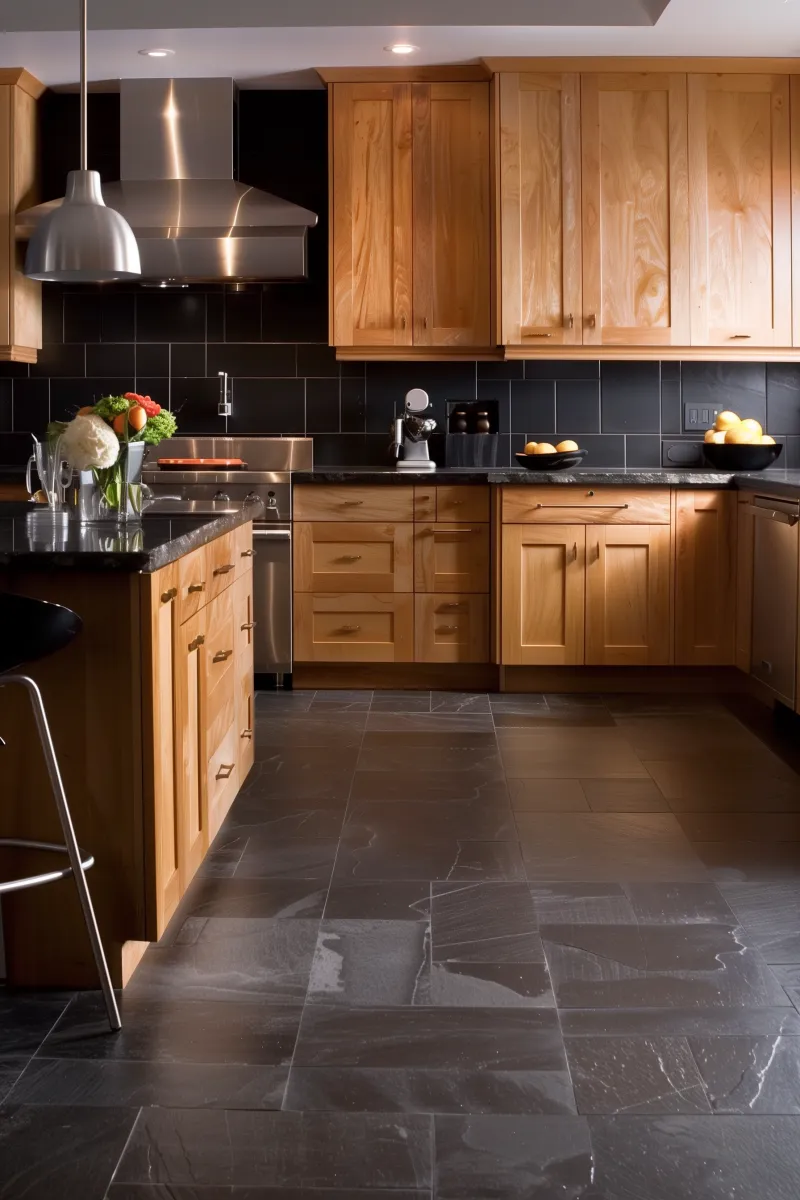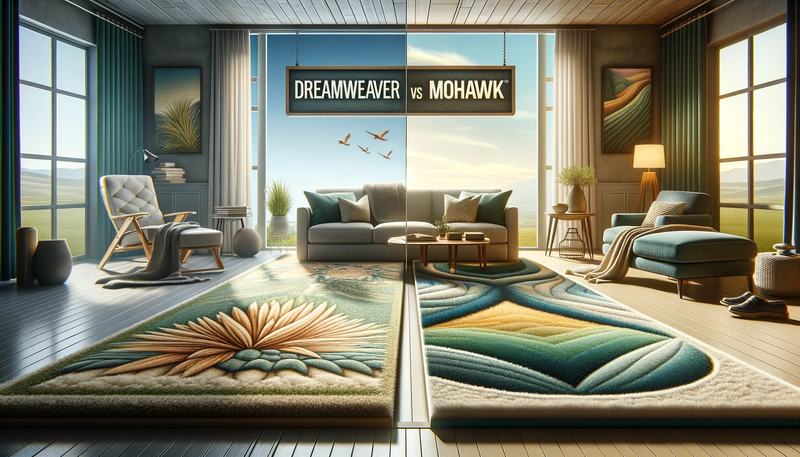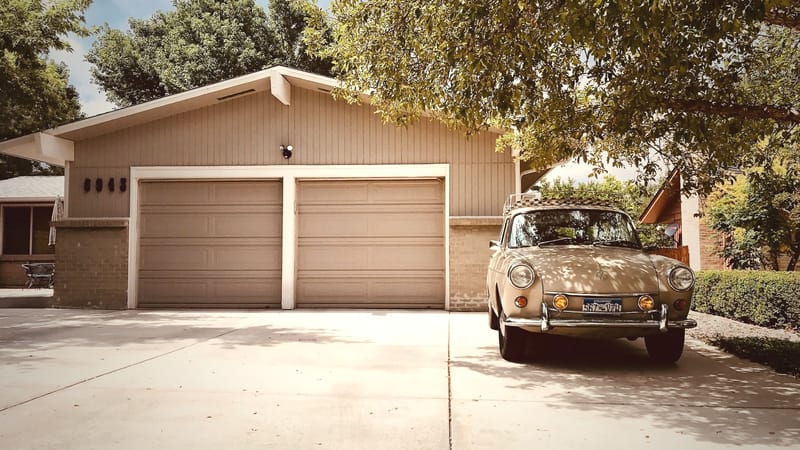This post compares nylon vs smartstrand carpet.
When considering carpet options for your home, two popular choices are nylon and SmartStrand.
Each has its distinct advantages and drawbacks. Here's a detailed comparison to help you decide which might be the better choice for your home.
Why is it important to choose the right carpet?

- Comfort and Feel: The right carpet enhances the comfort of a room. Carpets vary in softness and texture, affecting how the floor feels underfoot.
- Durability and Longevity: Different carpets have varying levels of durability. High-traffic areas require carpets that can withstand wear and tear, ensuring longevity and maintaining appearance over time.
- Health and Allergies: Carpets can impact indoor air quality. Some carpets trap allergens and dust, which can be problematic for allergy sufferers. Choosing a hypoallergenic or easy-to-clean carpet can make a significant difference.
- Maintenance Requirements: Carpets come with different cleaning and maintenance needs. The right choice can make upkeep manageable based on your lifestyle and available time for maintenance.
- Aesthetic and Design: Carpets play a vital role in interior design. They can be a statement piece or complement the existing decor. The right carpet ties a room together visually.
- Insulation and Noise Reduction: Carpets provide thermal insulation and sound absorption, creating a warmer and quieter environment.
- Safety: Carpets can prevent slipping, and cushion falls, which is particularly important in homes with young children or elderly residents.
- Environmental Impact: Some carpets are more environmentally friendly than others. Some are made from sustainable materials and with less impact on the environment.
- Cost-Efficiency: The right carpet fits within your budget while meeting your other requirements, ensuring a cost-effective investment.
The right carpet choice is essential for enhancing the comfort, health, aesthetics, and overall functionality of your living or working space. This makes it an integral part of home or office design.
Now, let's get into this nylon vs smartstrand carpet comparison.
1. Smartstrand Carpet, also known as Triexta Carpet
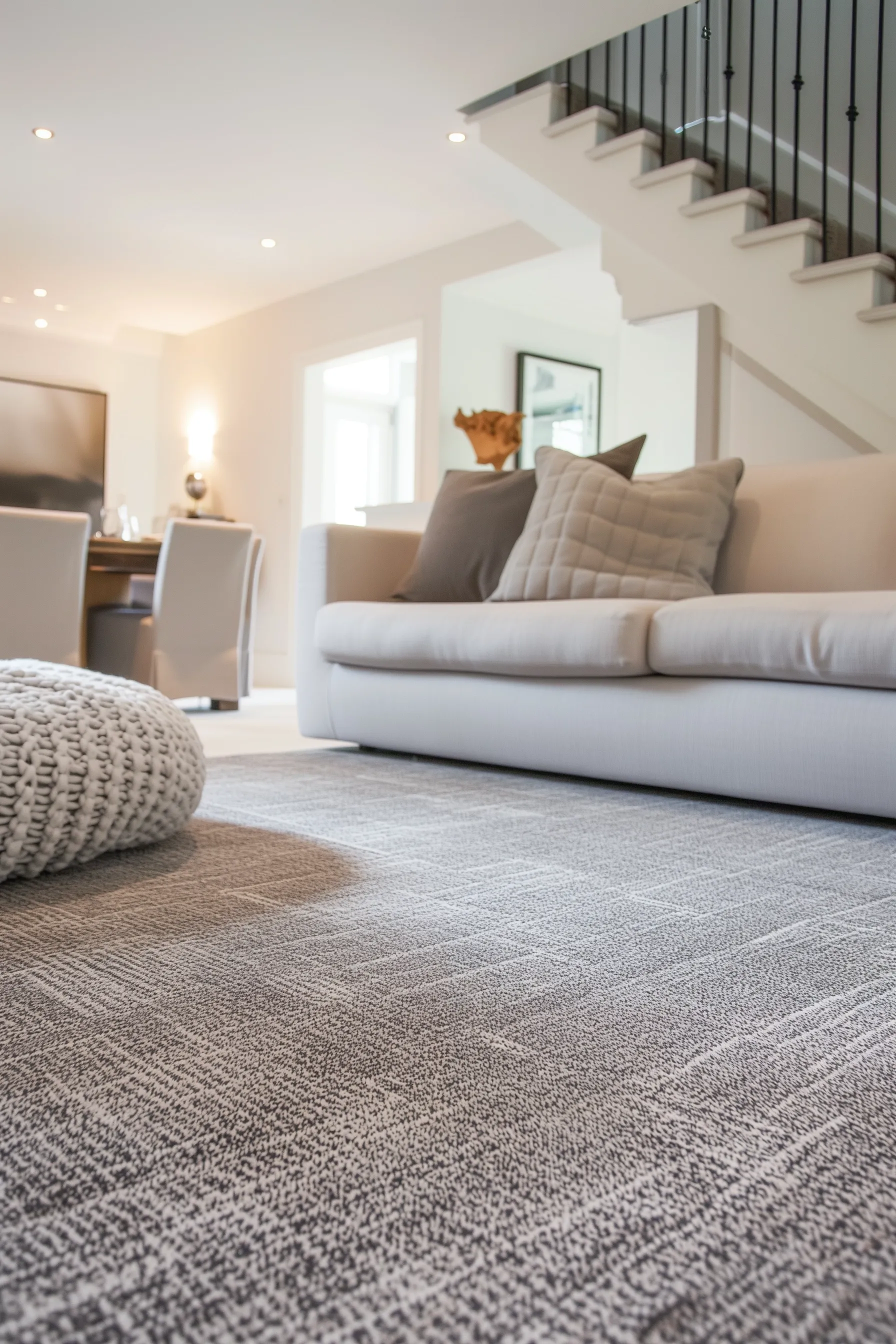
SmartStrand carpet is a brand name of carpeting known for its unique blend of durability, comfort, and eco-friendliness.
It is one of the most innovative carpet brands around at the moment.
Triexta is a subclass of polyester, but it is differentiated by its molecular structure, which enhances its durability and stain protection.
Developed by Mohawk Industries, the critical component of SmartStrand is a fiber called Triexta, derived in part from renewable resources.
Pros of Mohawk's Smartstrand carpet:
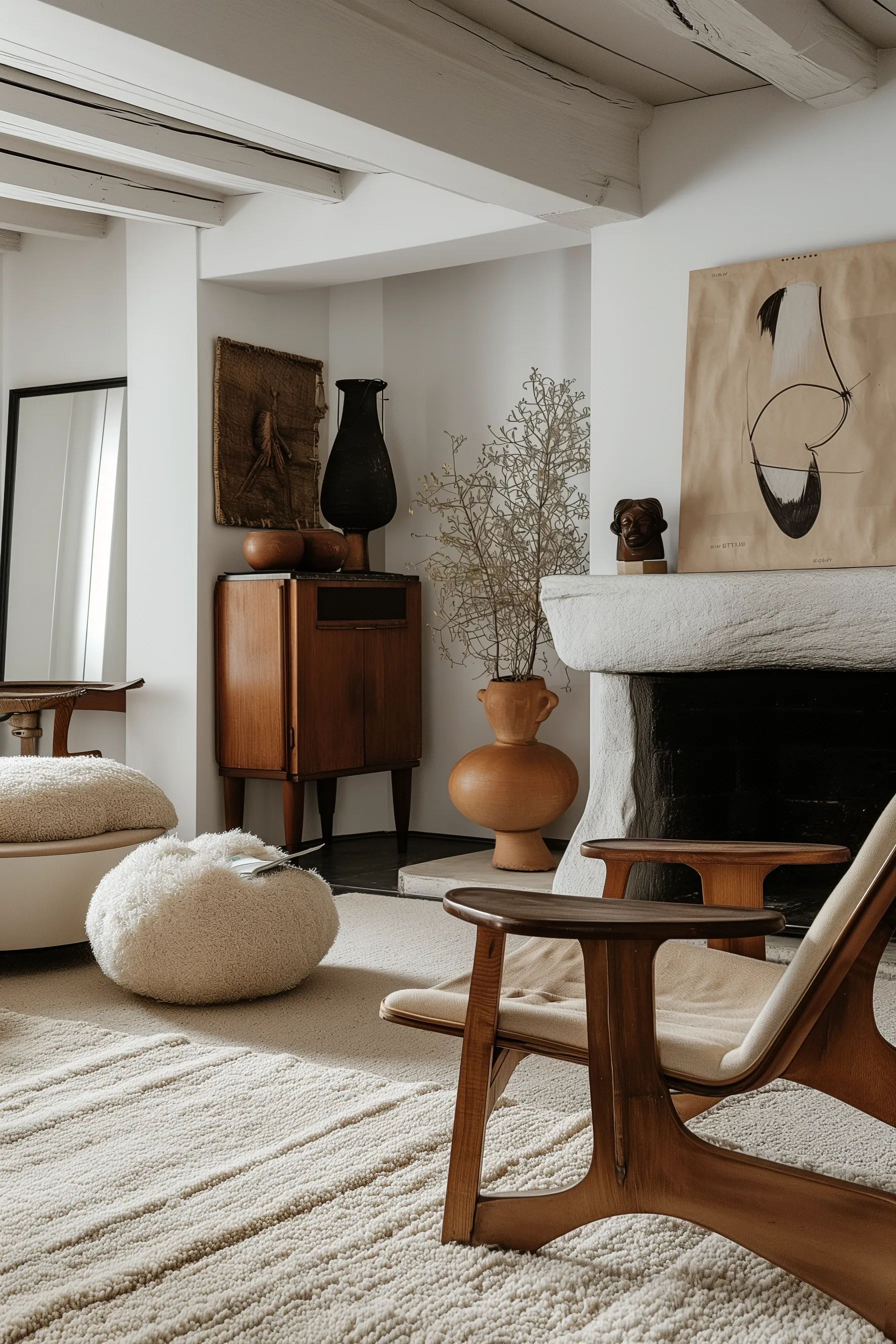
- Eco-Friendly Composition: SmartStrand is made with renewable materials, reducing reliance on petroleum-based products and lowering emissions of harmful compounds. This makes it a more environmentally conscious choice.
- Inherent Stain Resistance: One of the standout features of SmartStrand fibers is its built-in stain resistance. This is not just a surface treatment but an integral part of the type of fiber, ensuring lasting protection against spills and stains.
- Durability: SmartStrand carpets are designed to withstand wear and tear, maintaining their appearance over time, even in high-traffic areas. They are resilient against crushing and matting.
- Soft Texture: These carpets are known for their softness, offering a plush and comfortable feel underfoot.
- Extensive Warranty: SmartStrand typically has generous warranty terms, often including long-term texture retention and stain resistance coverage.
- Resistance to Mold and Mildew: The material is also resistant to mold and mildew, making it a practical option for various climates and settings.
Cons of Mohawk's Smartstrand carpet :
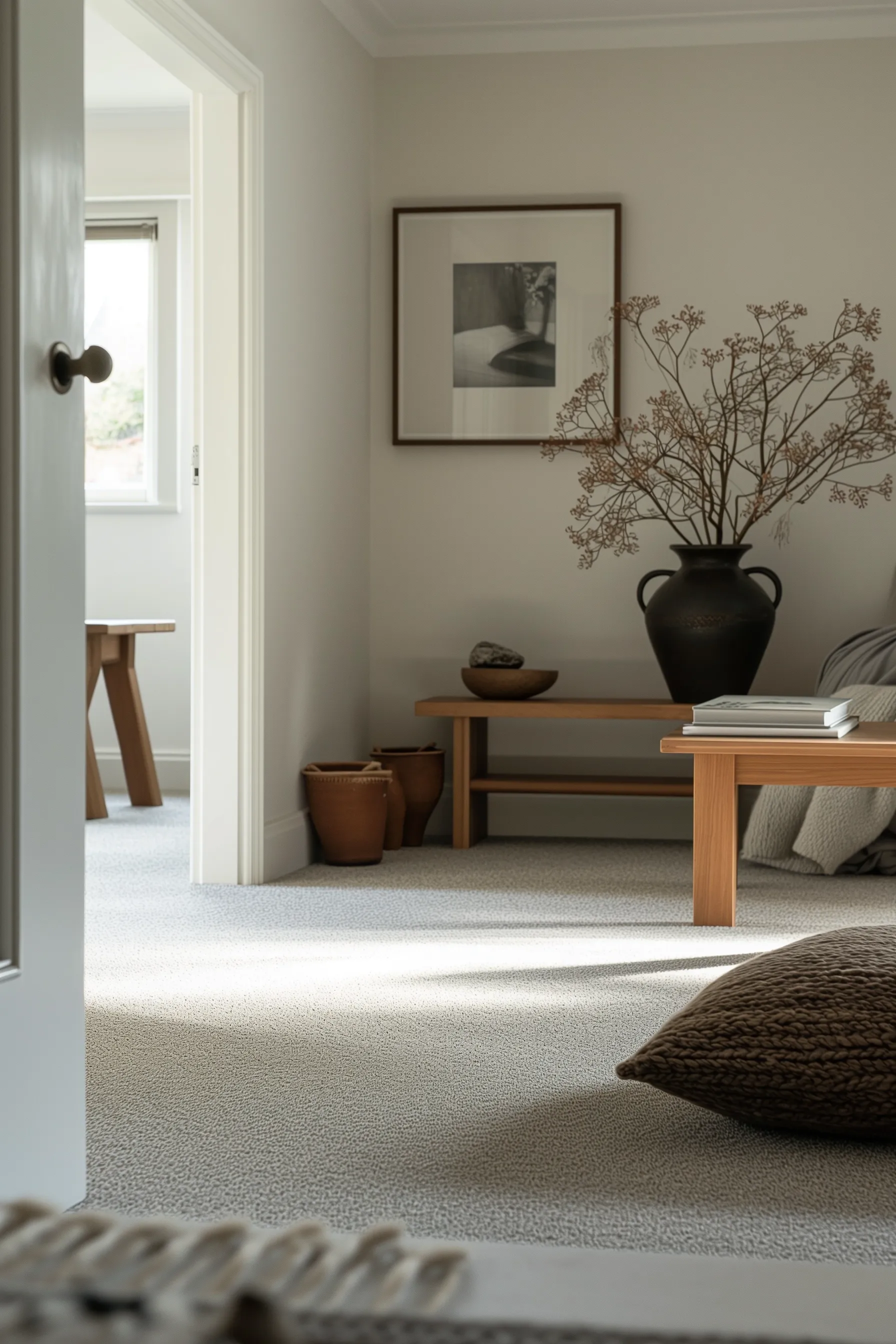
- Higher Price Point: Compared to other synthetic carpets, SmartStrand can be more expensive, particularly for premium models.
- Newer on the Market: Introduced in 2009, SmartStrand doesn’t have as extensive a track record as more established materials like nylon. This leaves some aspects of its long-term performance more uncertain.
- Challenges with Oil-Based Stains: While effective against most common stains, SmartStrand might struggle with oil-based substances.
- Specialized Cleaning Requirements: Professional cleaning methods might be necessary for certain types of stains and dirt, as regular home cleaning solutions may not suffice.
Who is it the best choice for?
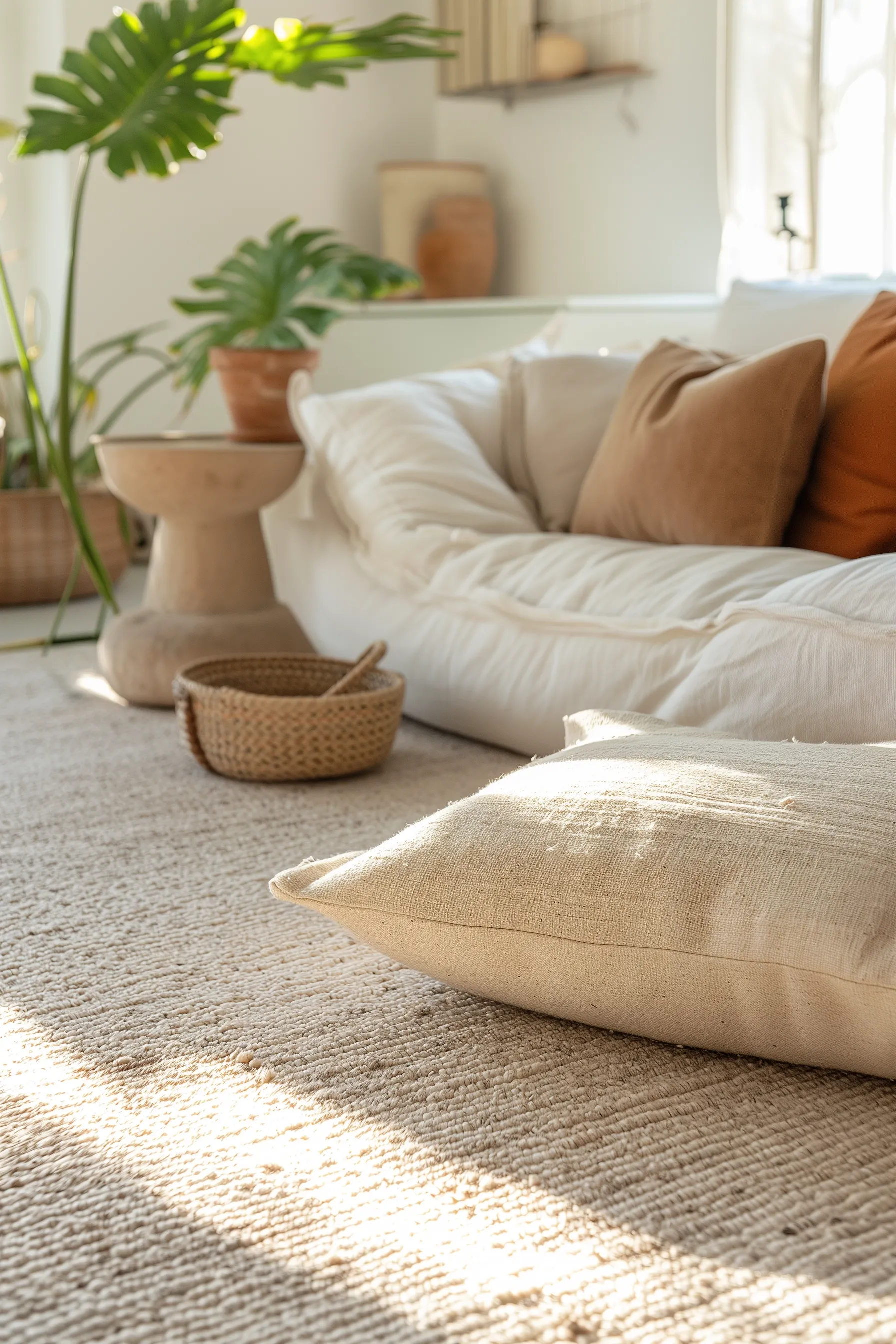
- Eco-Conscious Consumers: Individuals prioritizing environmental sustainability in their purchasing decisions will appreciate SmartStrand's use of renewable resources and its manufacturing process to reduce their environmental footprint.
- Families with Children and Pets: Its inherent stain resistance and easy-to-clean nature make SmartStrand carpets a practical option for households with kids and pets, where spills and stains are more frequent.
- Allergy Sufferers: Due to its resistance to mold and mildew, SmartStrand can be a good choice for those with allergies or sensitivities to these irritants.
- Homeowners Seeking Comfort and Luxury: The soft texture of SmartStrand carpets provides a plush, comfortable feel underfoot, appealing to those looking to add a touch of luxury and comfort to their homes.
- High-Traffic Residential and Commercial Spaces: Its durability makes SmartStrand suitable for areas with high foot traffic, where the carpet needs to maintain its appearance over time.
- Buyers Looking for Long-Term Investment: Given its extensive warranty coverage and being naturally stain resistant, SmartStrand is a solid choice for those seeking a long-term investment in their flooring.
- Design-Conscious Individuals: For those looking to enhance their space's aesthetic appeal, SmartStrand offers various styles and colors to complement different interior designs.
2. Nylon Carpet
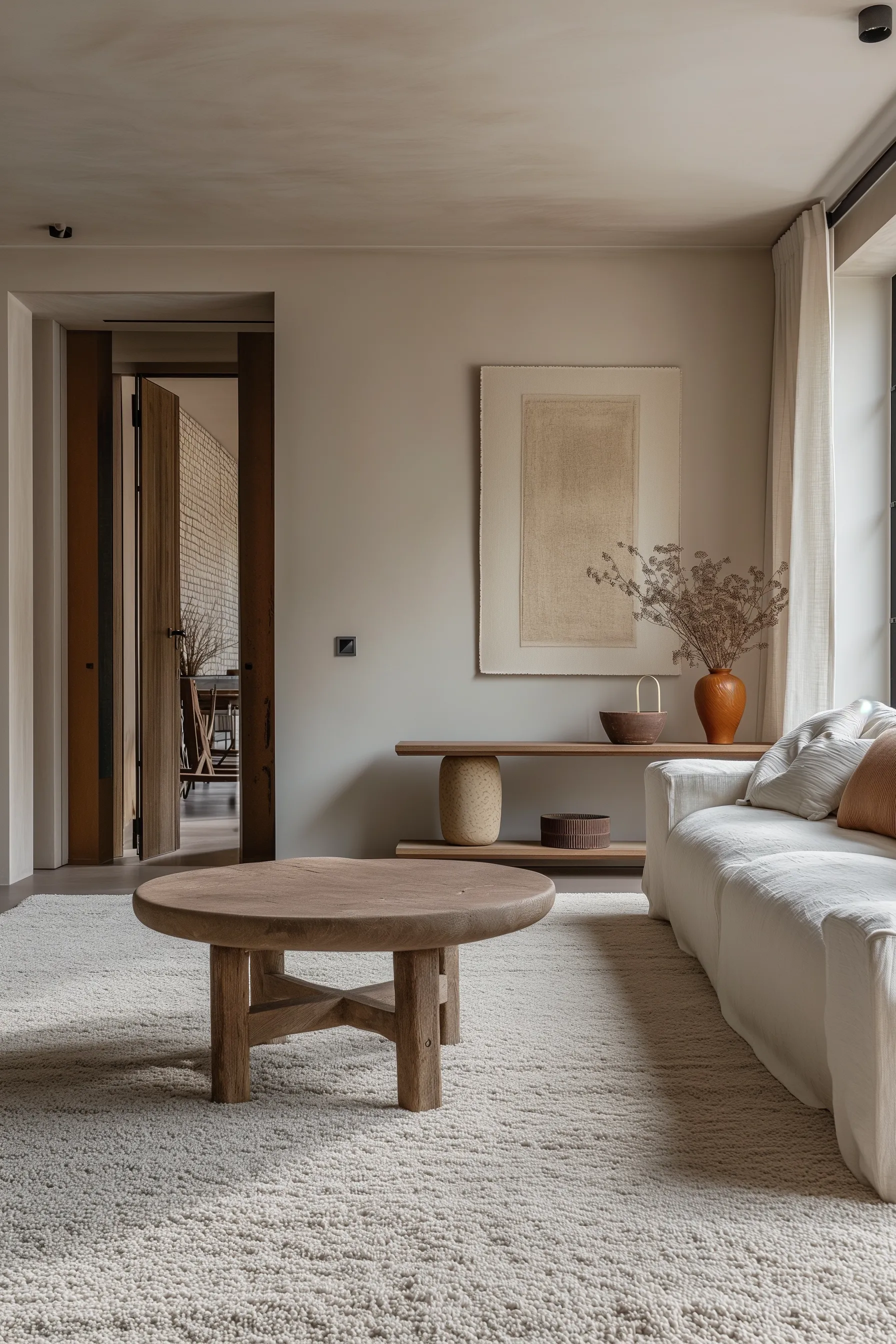
Nylon carpet is a highly popular type of synthetic carpeting known for its remarkable durability and versatility.
Made from nylon synthetic fibers, it is one of the most commonly used materials in the carpet industry.
Nylon carpets gained popularity for their ability to balance practical needs with aesthetic preferences. It is widely used in residential and commercial settings, offering a design flexibility that few other carpeting materials can match.
In terms of home comfort, a soft nylon carpet can significantly enhance the coziness and warmth of your living spaces.
Pros of Nylon carpets:
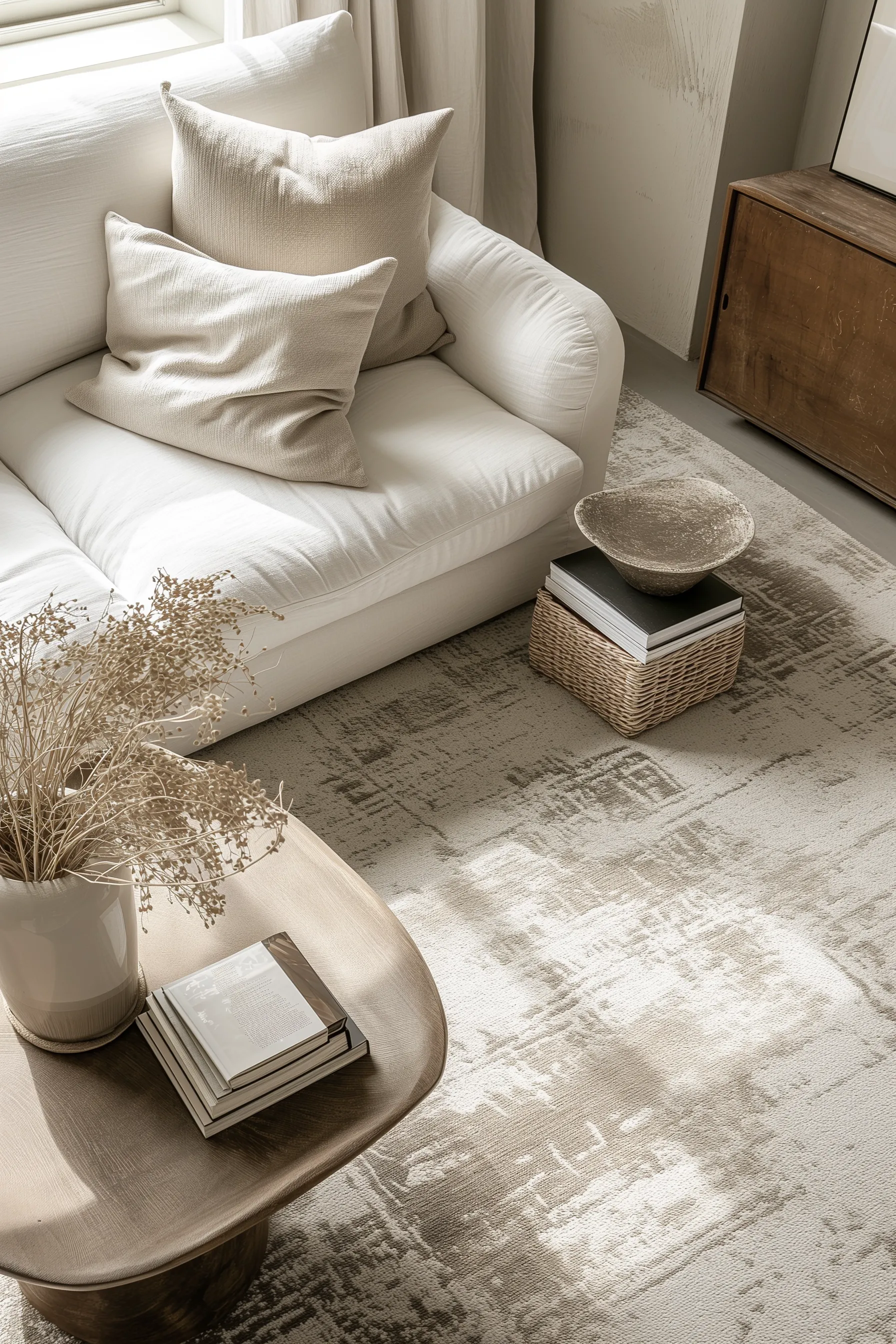
- Durability: Nylon carpets are celebrated for their exceptional wear resistance. They are resilient against foot traffic, making them ideal for high-traffic areas in homes and commercial spaces. The quality of the carpet is fantastic.
- Stain Resistance: Most nylon carpet fibers are treated to be stain-resistant, effectively repelling everyday household spills and stains. This makes them a practical choice for families and busy households.
- Maintain Appearance: Thanks to their resilience, nylon carpets maintain their like-new appearance for longer compared to other synthetic fiber types.
- Versatility in Design: Nylon carpets come in various colors, styles, and textures. They offer extensive design choices to fit multiple decor preferences.
- Resilience: The fibers in nylon carpets have excellent elasticity. This means they can return from compaction more quickly, which helps retain their shape and texture over time.
- Easy Maintenance: Generally, nylon carpets are relatively easy to clean and maintain, adding to their practicality in everyday use.
Cons of Nylon carpets:
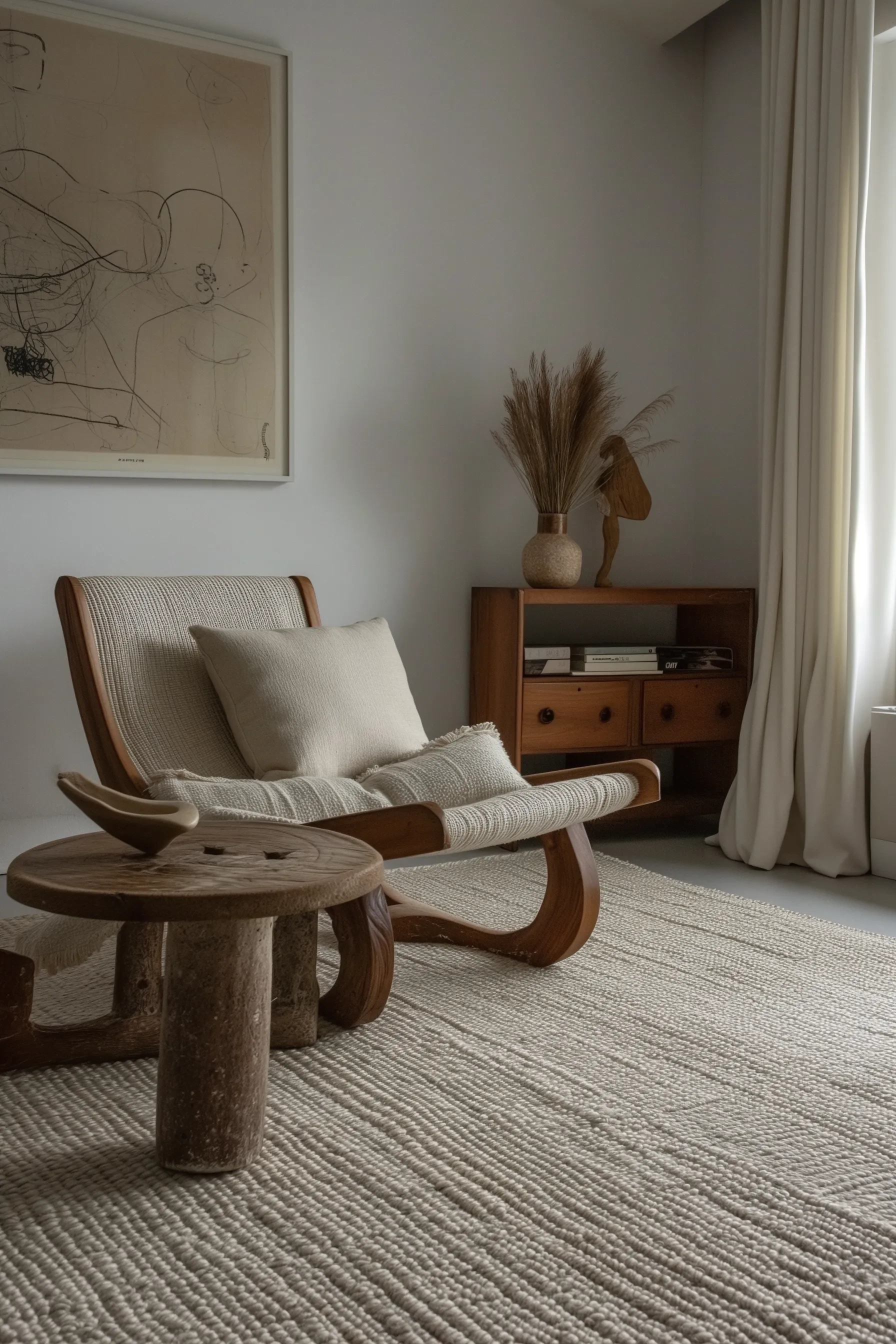
- Cost: Nylon carpets are usually more expensive than synthetic options like polyester or olefin. The higher price point can be a consideration for budget-conscious buyers.
- Environmental Impact: Being a synthetic material, nylon is not as eco-friendly as natural options. Some nylon carpets are made from recycled materials, but they still have a larger environmental footprint than natural fibers.
- Heat Sensitivity: Nylon can be sensitive to high temperatures and may melt or degrade if exposed to extreme heat.
- Static Electricity: Nylon carpets can generate static electricity, although many modern options are used to reduce this effect.
- Not Biodegradable: Unlike natural fibers, nylon fibers are not biodegradable, contributing to environmental concerns regarding disposal.
Who is it an excellent choice for?
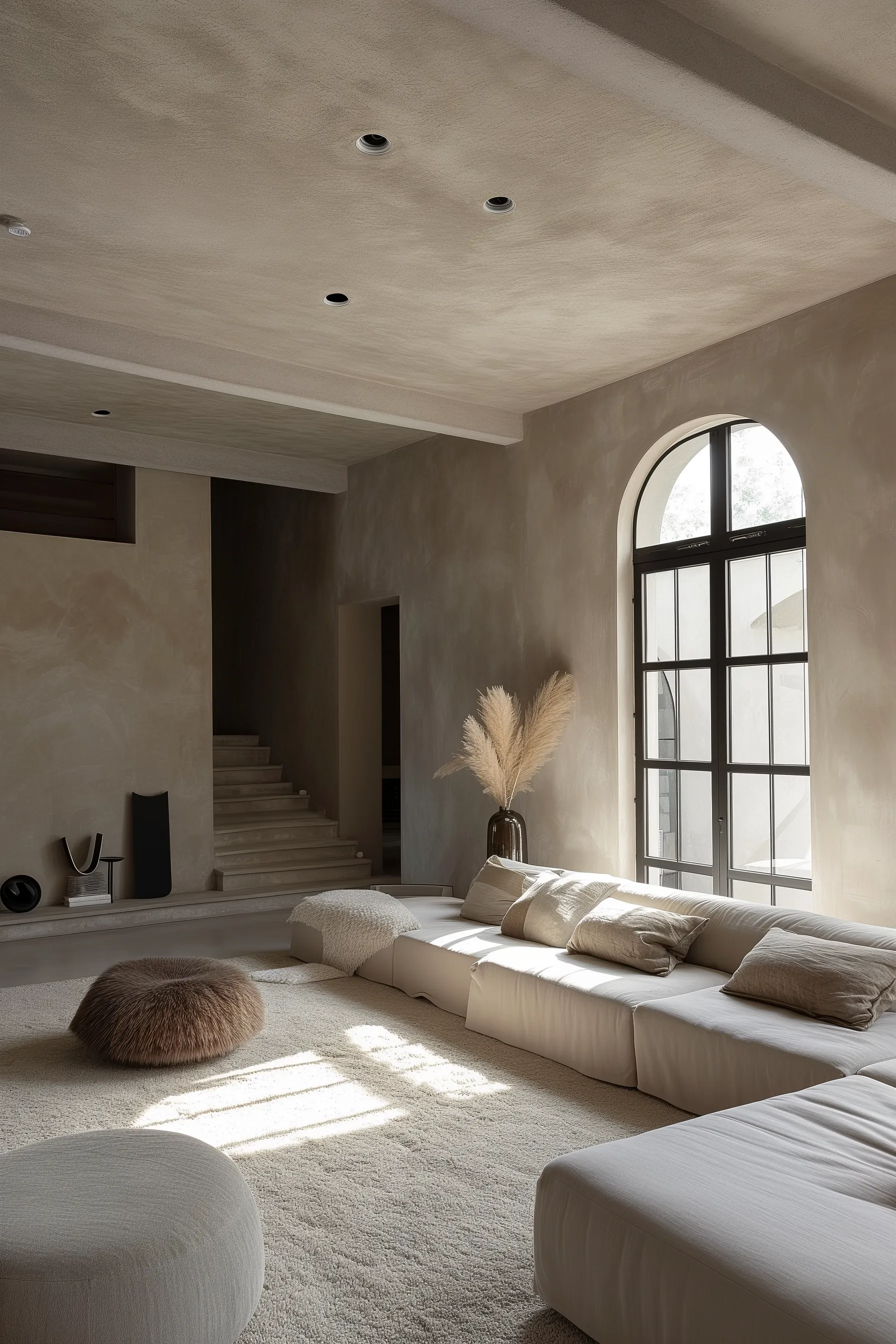
- High-Traffic Homes and Commercial Spaces: Nylon's durability and resilience to foot traffic make it ideal for busy households, offices, and commercial settings where the floor is subject to frequent use.
- Families with Children and Pets: Nylon carpets' stain resistance and easy-to-clean nature cater well to homes with kids and pets, where spills and stains are common.
- Style-Conscious Homeowners: Those looking to enhance their home decor will find nylon's wide range of colors, patterns, and textures appealing, allowing for significant design flexibility.
- Budget-Conservative Buyers Seeking Quality: While more expensive than some synthetic options, nylon offers a balance of quality and cost, making it a suitable long-term investment for those who can afford a slightly higher initial price.
- Allergy Sufferers: Nylon carpets can be treated for allergen resistance, making them suitable for individuals with allergies or asthma.
- Areas Prone to Wear and Tear: For spaces like hallways, living rooms, or office floors, where carpet durability is a priority, nylon's ability to resist matting and crushing underfoot is a significant advantage.
- Environmentally Conscious Consumers Seeking Synthetic Options: For those preferring synthetic over natural fibers but still concerned about environmental impact, some nylon carpets are made from recycled materials, offering a more sustainable choice within the synthetic category.
3. Polyester Carpet
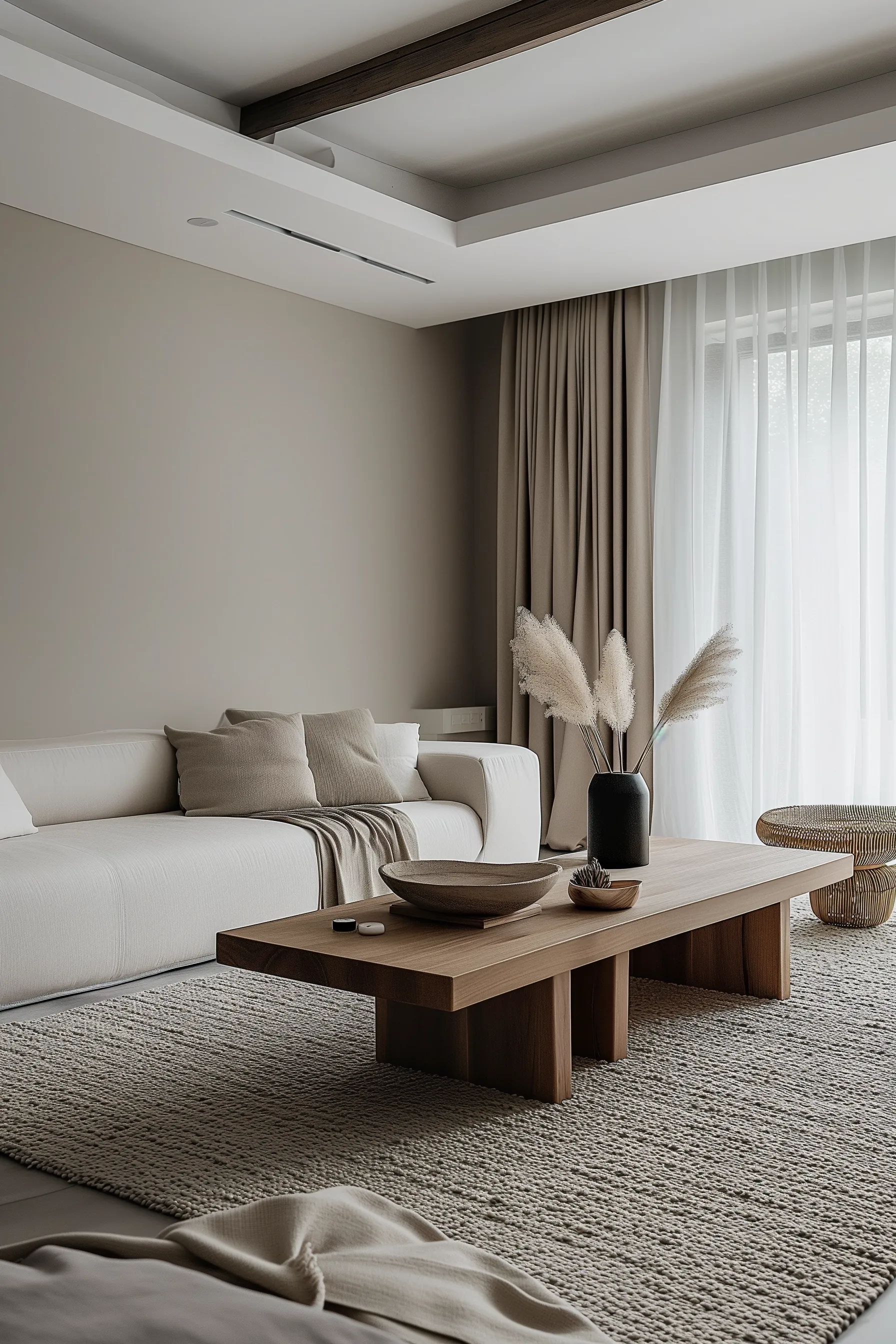
Polyester carpet is a popular synthetic flooring option know for its lower cost, vibrant colors, and stain resistance.
These carpets are made from polyester fiber and have been a common choice in homes for many years.
Polyester's appeal lies in its performance, aesthetic versatility, and budget-friendliness. This makes it suitable for a wide range of interior designs.
Pros of Polyester carpets:
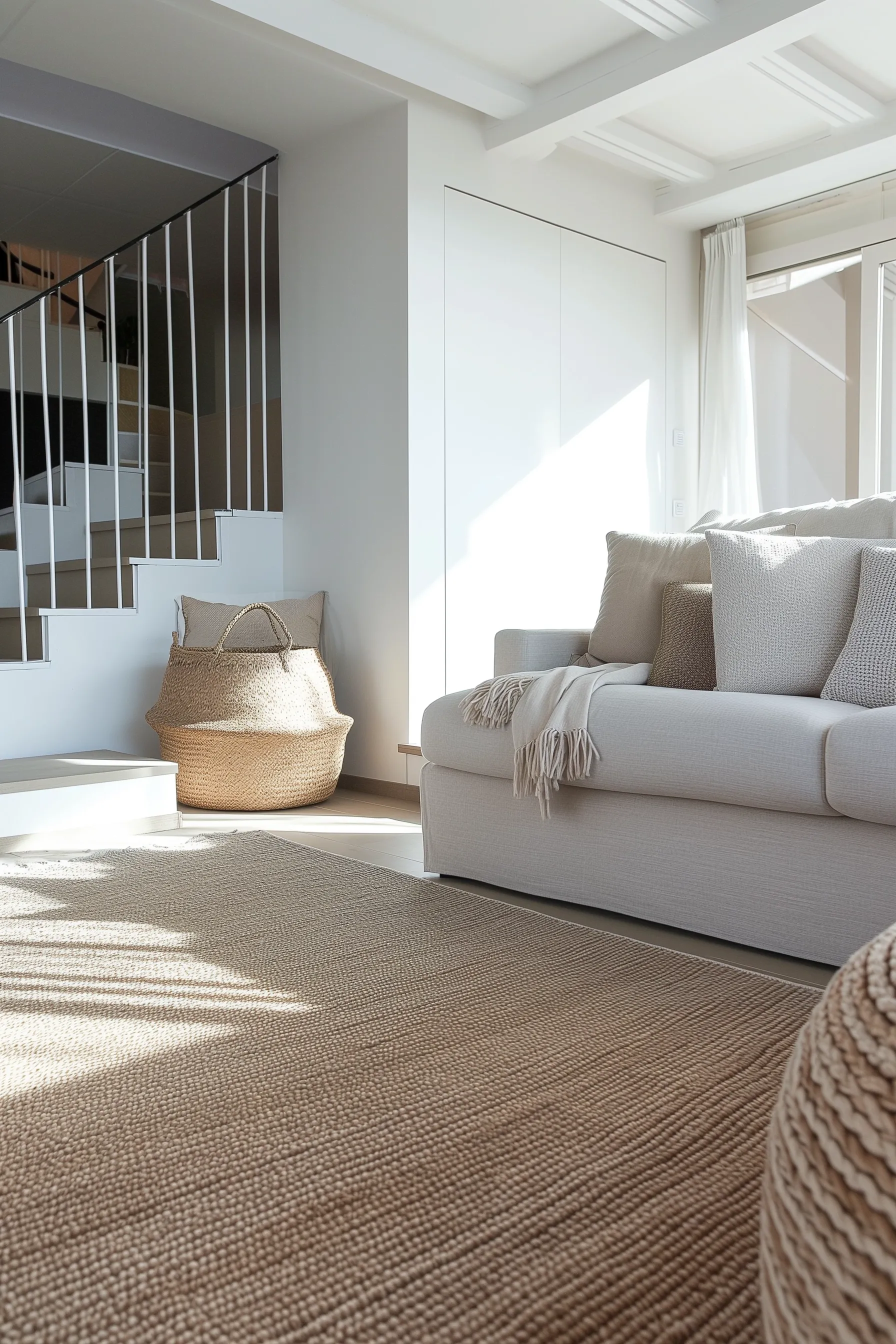
- Stain Resistance: Polyester carpets are naturally stain-resistant, making them ideal for homes with kids or pets where spills occur daily.
- Color Vibrancy: Polyester fibers hold dye exceptionally well. It results in bright and fade-resistant carpets, maintaining their color over time.
- Softness: Many homeowners appreciate the soft texture of polyester carpets, which adds a comfortable and plush feel underfoot.
- Affordability: Polyester carpets are generally more budget-friendly than carpets made from nylon or wool, offering a lower-cost flooring solution.
- Eco-Friendly Options: Some polyester carpets are made from recycled materials, like plastic bottles, making them an environmentally conscious choice.
- Low Maintenance: These carpets are relatively easy to clean and maintain, adding to their appeal to busy households.
Cons of Polyester carpets:
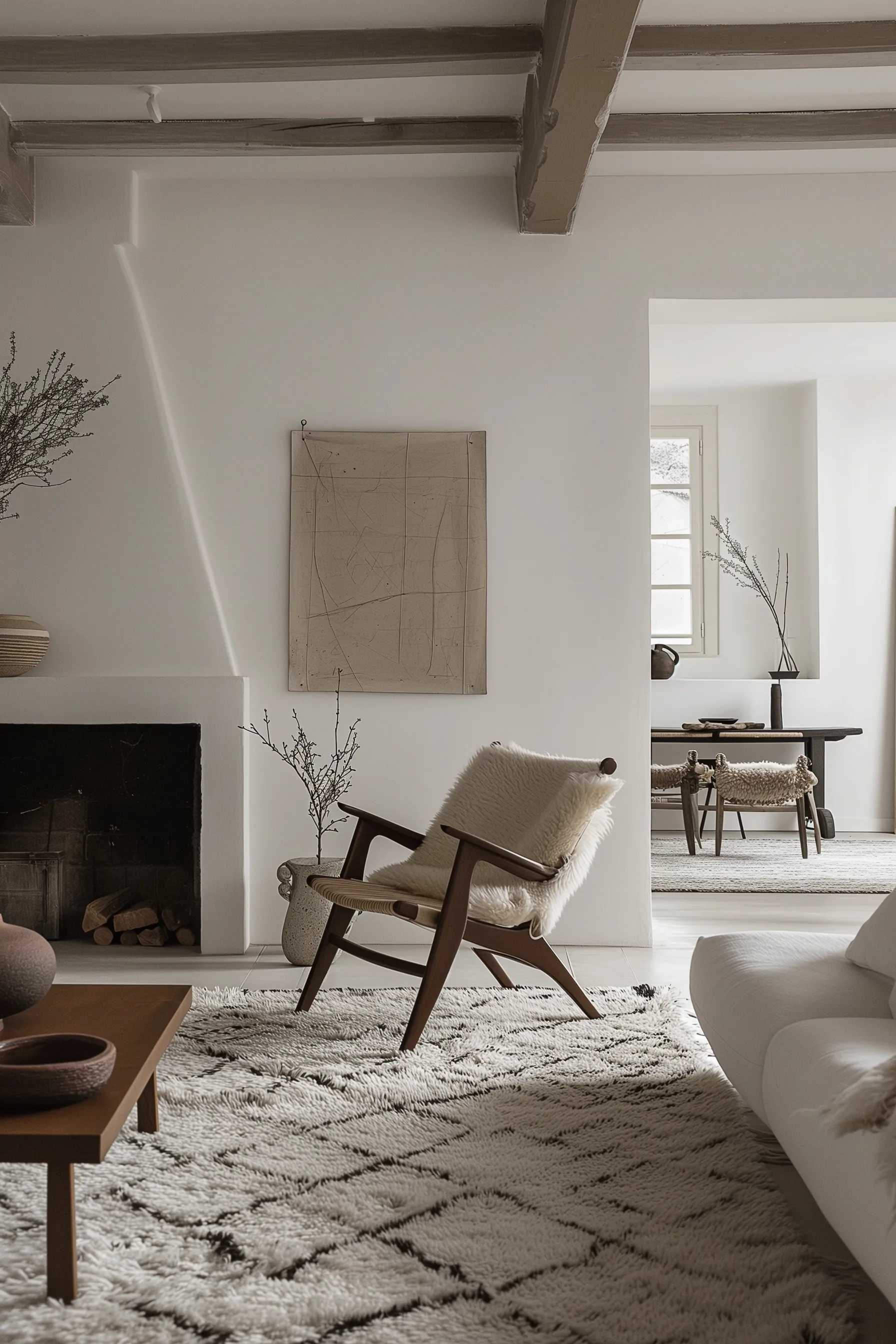
- Durability Concerns: While polyester is suitable for moderate foot traffic, it tends to be less durable and resilient than nylon. This means it may mat or crush in high-traffic areas over time.
- Absorption of Oils: Polyester fibers can absorb oils, which might lead to staining in environments with oil-based substances.
- Limited Resilience: Polyester carpets may not bounce back as readily as nylon after being compressed. This can affect their long-term appearance.
- Environmental Impact: Although recycled options are available, standard polyester carpets are made from synthetic materials and are not biodegradable.
- Limited Suitability for High Traffic Areas: Polyester may not be the best choice for areas with heavy foot traffic due to its lower resilience compared to other fibers like nylon or triexta.
Who is it a good choice for?
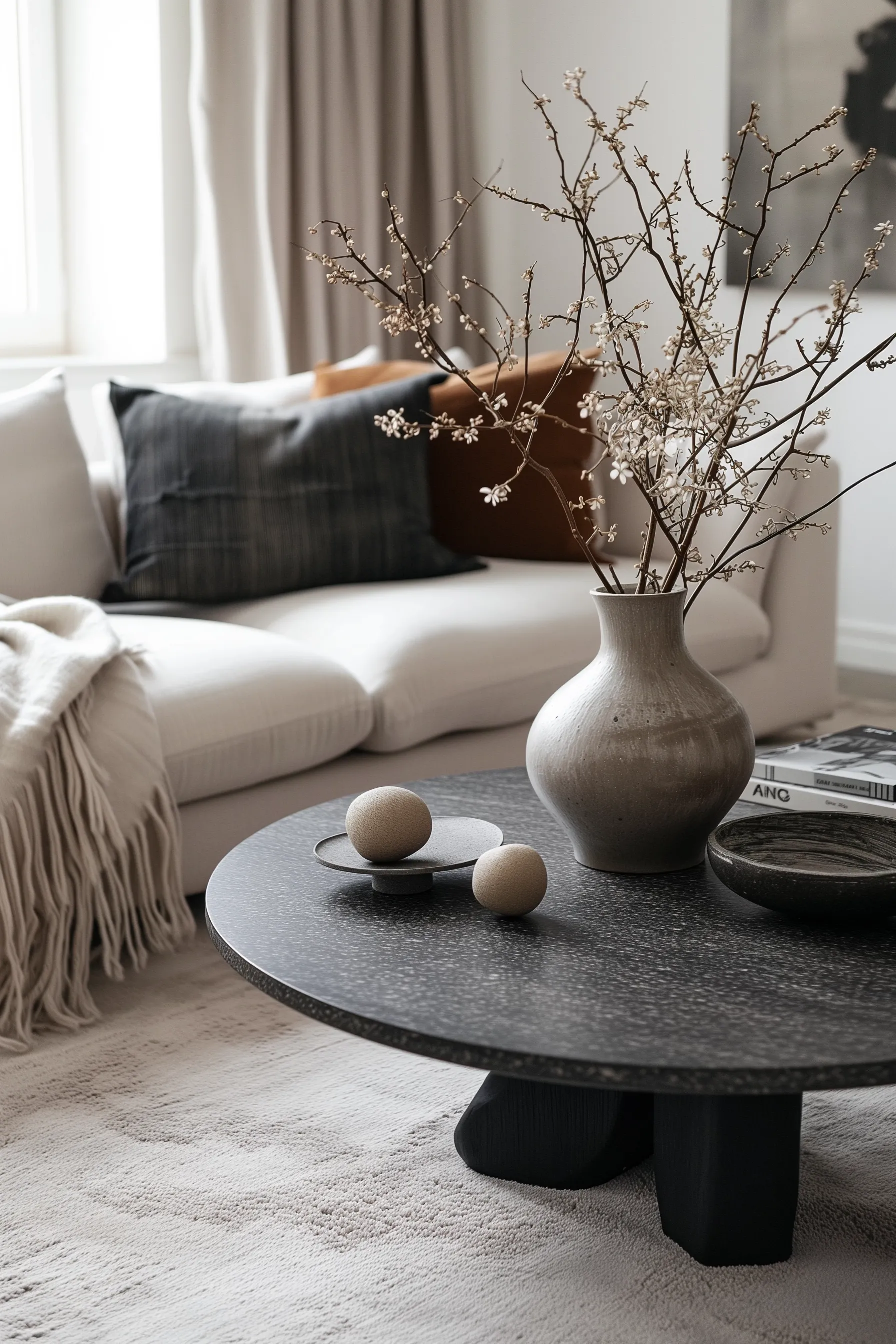
- Budget-Conscious Consumers: Those looking for an affordable carpeting option without compromising quality will find polyester carpets a cost-effective solution.
- Homeowners Seeking Vibrant Aesthetics: Individuals who want to add a pop of color to their rooms will appreciate the wide range of vibrant and fade-resistant colors available in polyester carpets.
- Low to Moderate Traffic Areas: Polyester carpet is well-suited for parts of the home that don't experience heavy foot traffic. For example, in bedrooms or formal living rooms.
- Eco-Friendly-Minded Buyers: For those interested in environmentally sustainable choices, some polyester carpets are made from recycled materials like plastic bottles, offering a greener flooring option.
- Households with Occasional Spills: Families with children or pets will benefit from polyester's natural stain resistance, making it easier to clean up spills.
- Those Preferring Softness Underfoot: People looking for a comfortable, soft feel from their carpet will appreciate the plush texture of polyester.
- Residents in Low-Humidity Areas: Since polyester is less absorbent than other materials, it's a good option in areas where moisture and mold are not your main concern.
Considerations Before Purchasing Carpet
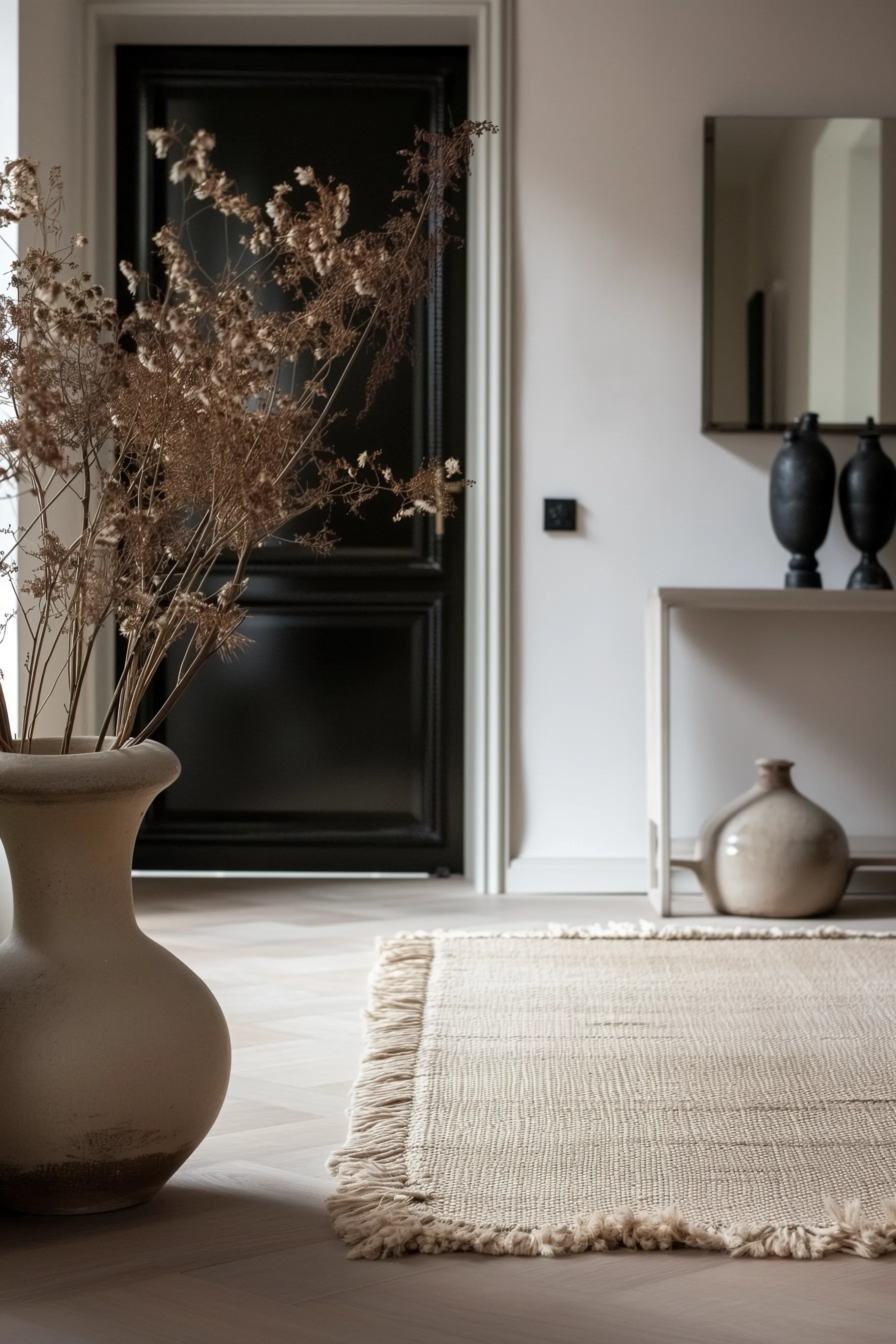
When purchasing a carpet, several important considerations should be taken into account to ensure you make the best choice for your needs:
- Material: Choose between natural fibers (like wool) or synthetic options (like nylon, polyester, or olefin) based on durability, feel, and maintenance.
- Lifestyle and Usage: Consider the amount of foot traffic, the presence of children or pets, and the likelihood of spills or a lifetime stain. For example, a rug in the dining room would be more prone to food stains.
- Pile and Texture: Decide on the type of pile (plush, Berber, frieze) that suits your comfort and aesthetic preferences.
- Color and Patterns: Select a color or pattern that complements your room's decor and lifestyle needs—for example, darker colors to hide stains.
- Size and Layout: Measure your space accurately and consider the room's layout.
- Budget: Factor in the cost of the carpet and installation, keeping in mind that higher-quality carpets may be more expensive but the most durable fiber.
- Maintenance and Cleaning: Understand the cleaning requirements and whether you're prepared for professional cleaning if necessary.
- Environmental Impact: For eco-conscious buyers, consider carpets with lower VOC emissions or made from sustainable materials.
- Warranty: Check for warranty coverage, which can assure your investment.
- Installation Requirements: Consider the complexity of installation and whether professional installation is required.
This post compared nylon vs synthetic carpet.
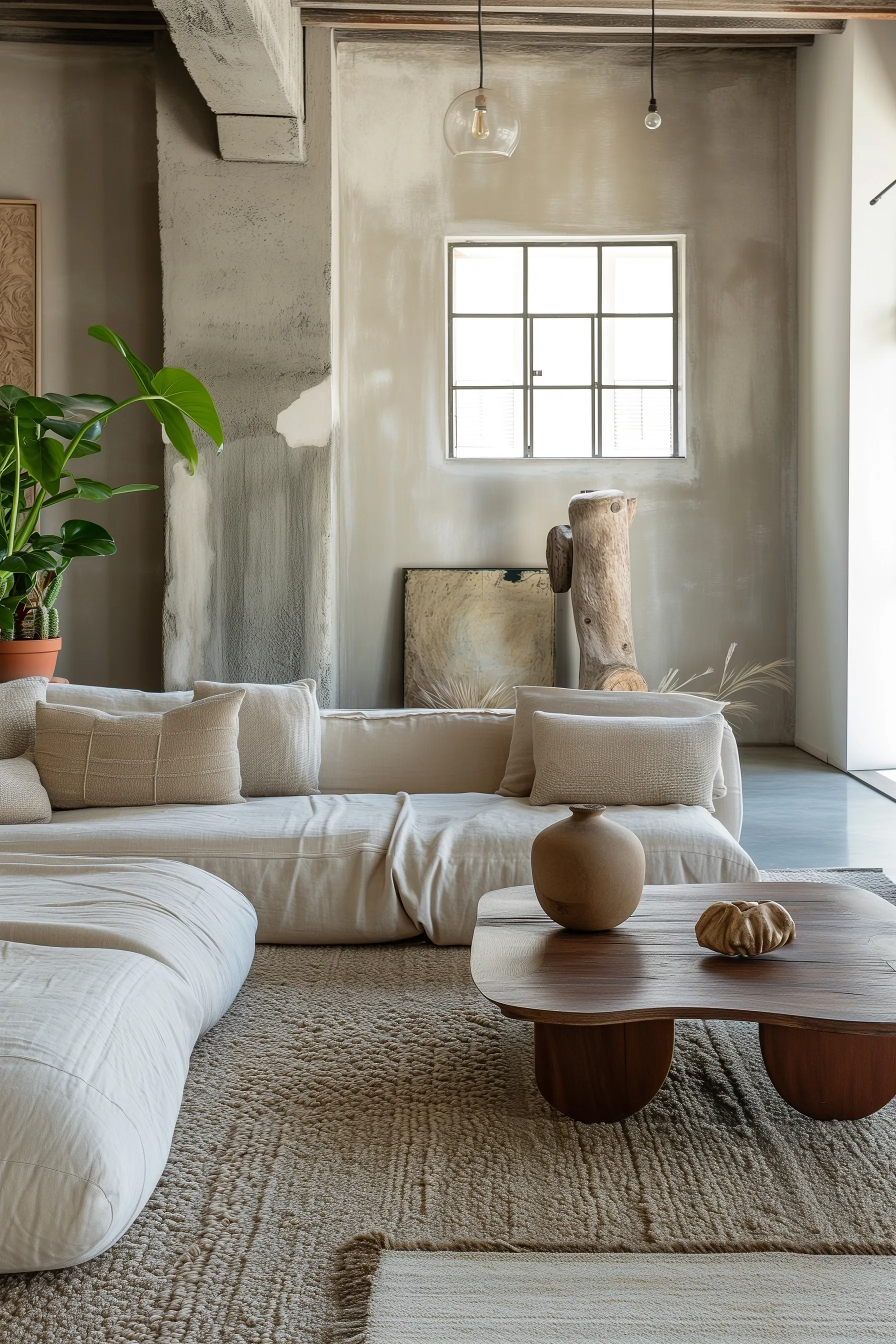
When selecting the perfect carpet for your home, the material plays a pivotal role in balancing functionality and style.
Whether you choose the durable and resilient nylon, the eco-friendly and stain-resistant SmartStrand, or the budget-friendly and vibrant polyester, each material brings unique advantages to meet different needs and preferences.
By understanding the overall performance of these carpeting materials, you can make an informed decision that enhances your home's aesthetic appeal and aligns with your lifestyle. This ensures lasting satisfaction and comfort in your living spaces.
With the right choice, your new carpet can transform any space, adding warmth, texture, and comfort to your daily life. This is one of the main reasons it is a worthwhile investment in your living environment.


